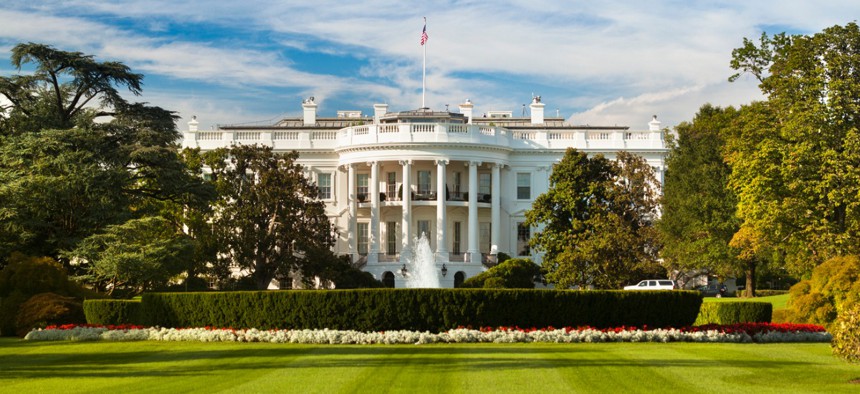Secret Service Director Calls for More Staffing, Retention and Cybersecurity Funding

Pgiam/iStock.com
The director thanked employees for their hard work and resilience over the past year.
Ahead of budget negotiations ramping up, the Secret Service director on Thursday told House lawmakers he would like continued funding for staffing increases, retention of current employees and cybersecurity.
Secret Service Director James Murray praised his workforce during a House Appropriations Homeland Security Subcommittee hearing and highlighted several ongoing and future investments that would support the agency’s employees. So far, President Biden has only released an outline of his fiscal 2022 budget proposal, with a full version expected later this spring.
“We are highly committed to our human capital strategic plan, which gets the agency to somewhere around 9,595 [employees] by fiscal year 2026,” so funding will be critical for that, Murray told the subcommittee. The agency––which had 7,609 employees as of December 2020, according federal data––is currently working to achieve its fiscal 2021 year goal of about 7,900 positions filled. Murray did not discuss the specific amount of funding that would be necessary to reach staffing goals.
“Continued investment in our retention methods,” such as student loan repayments and child care subsidies, is another need to maintain the current workforce, Murray said.
The agency has “redoubled” its efforts on recruiting diverse talent, such as by connecting with Historically Black Colleges and Universities, Hispanic Serving Institutions, Native Serving Institutions and organizations serving women. It is also using social media to reach younger individuals.
From September 2006 to December 2020, the proportion of women in the Secret Service has stayed around 24%, but the percentage of racial and ethnic minorities increased from 25.6% to 32%, according to the Office of Personnel Management’s data.
Anecdotally, the director said, “When I graduated [from] the academy 26 years ago I think about 8% of our class was female,” but then “last week I commissioned a class where more than half of the agents were female.”
Murray said the recently released results of the 2020 Federal Employee Viewpoint Survey were “particularly encouraging given the operational complexities of the past year.” The agency must continue to stay engaged with employees to keep up morale as it seeks to boost hiring and retention, he said.
Murray said he would also like to see “continued investment in our cyber fraud task forces and in our field operations, [and] likewise continued investment in the National Computer Forensics Institute.” In the past year the agency has disrupted hundreds of coronavirus relief scams online, opened more than 750 cases, seized about $800 million and made over 120 arrests. The potential for fraud and abuse is not going away––with the continued disbursement of pandemic recovery funds–– and it is critical to have sustained investments in cyber fraud programs, he said.
Additionally, the director would like more funding for “threat management efforts [and] protective intelligence efforts” such as open source investigation abilities.” He added: “we really need to improve with regard to our resourcing with readiness in terms of civil disturbance and training.”
This comes after a year in which the Secret Service was under scrutiny for the way it handled the protests in summer 2020 after police in Minneapolis killed George Floyd, an unarmed Black man, and the attack on the U.S. Capitol on January 6 as lawmakers were taking up the certification process of the 2020 presidential election. Murray said the agency did after-action reviews for both events and officials continue to learn from past challenges.
The Secret Service could use more funding to support National Special Security Events and although the agency is not responsible for designating which events fall into this category, Murray said he is open to conversations about what fits into the definition (Congress’ certification of the election results was not a National Special Security Event).
While Murray said he is grateful for the agency’s current training facilities, “long term what I’m looking to invest in is to create and construct venues that replicate the areas of operation that our officers and agents work in,” he stated. “I’m looking to build things like White House training facilities not only structurally, but also dimensionally. I think that’s going to be something that’s going to serve the security of this country and the Secret Service for many decades to come.”
Despite the vast challenges over the past year, “I am grateful for the resiliency and adaptability of our workforce, the active support of their families and their unwavering commitment to protect our nation’s leaders and safeguard our country’s financial infrastructure,” Murray told lawmakers.
He also thanked the subcommittee for its support over the years. The Secret Service received $2.44 billion in fiscal 2021, which was $22.2 million above the fiscal 2020 enacted level. In the fiscal 2022 budget preview, Biden proposed $52 billion for the Homeland Security Department, the only large agency to not receive a suggested funding increase. Rep. John Rutherford, R-Fla., said he was “concerned” the Secret Service was not mentioned specifically in the broad plan.
When asked by subcommittee chairwoman Rep. Lucille Roybal-Allard, D-Calif., if the current budget is keeping pace with the new post-presidency protective detail and Biden administration protection responsibilities, Murray said, “Right now the tempo is not overwhelming” due to limited travel during the pandemic. “I do think as we go into the third quarter and into the fourth quarter, it’s going to be a challenge and I think that’s going to cause us to make some decisions.”
Defense One reported earlier this week that the Biden administration could be the tardiest administration in a century to submit its first, full budget request.






